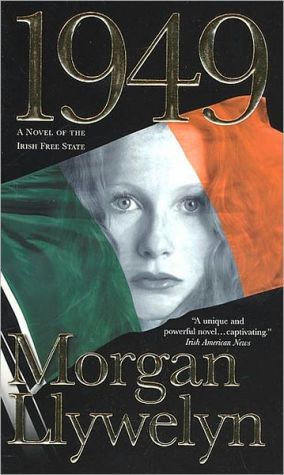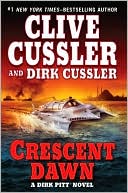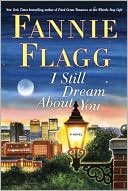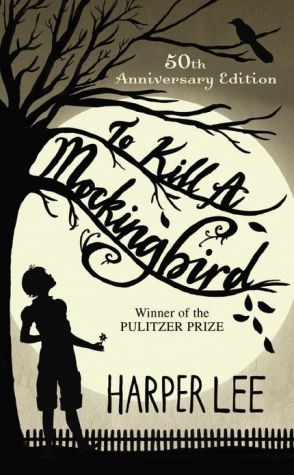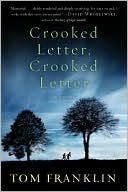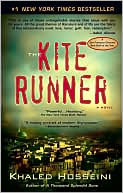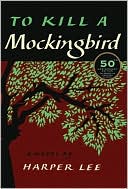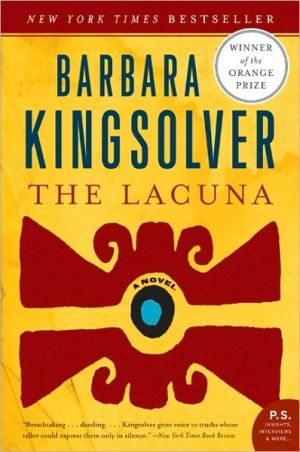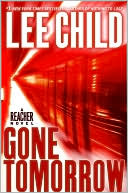1949: A Novel of the Irish Free State
1949 tells the story of Ireland's progress as seen through the eyes of one woman, from the bitter aftermath of civil war to the controversial dawn of a modern state. Ursula Halloran, the daughter of a famous revolutionary, comes of age in the turbulent 1920s. An education in Switzerland broadens her world view, but Ireland has become a repressive Catholic state where women are second-class citizens. Married women cannot hold jobs and divorce is illegal.\ Fighting against the stifling...
Search in google:
Praise for Morgan Llywelyn1921"Llywelyn continues her magnificent multivolume saga chronicling the twentieth-century struggle for Irish independence. As in 1916, she masterfully interweaves historical figures and events with fictional ones, providing both a panoramic and an intimate view." —Booklist"It is a seamless and beautiful work that depicts the struggle of the Irish people to form a nation. . . . 1921 is an artful blend of fictional and historical characters that meet and interact with such forcefulness and directness that the reader is convinced that if history didn't happen this way, it should have; for Llywelyn's work is not the skeletal work one normally associates with history, it is fully fleshed and rich with life. . . . This is a wonderful work of history, art, and storytelling." -El Paso Times1916"The politics and factionalism behind the Rising are a tangled web indeed, but Llywelyn unravels them skillfully. Even those who know the story well will be surprised and rewarded by the way she brings back to life a group of brave men who went nobly to their deaths."-The Philadelphia Inquirer"She weaves the tapestry of her story with intelligence and skill, and gives us access to a period when the bullets flew and patriots gave their lives for the ideal of freedom" -San Diego Union-Tribune"The novel's . . . easy, gripping style will enthrall casual readers with what is Llywelyn's best work yet." -Publishers Weekly (starred review)Publishers WeeklyDuring the period covered in Llywelyn's third magisterial novel (after 1916 and 1921) in her Irish Century series, from the island's division into the primarily Catholic Free State and the mostly Protestant Northern Ireland in the early 1920s to the creation of the Irish Republic in 1949, the outside world changes much while Ireland changes painfully little. Avoiding such stock Irish themes as the "curse" of drink and emigration to foreign and unwelcoming shores, the story focuses on the indomitable Ursula Halloran (adopted daughter of rebel Ned Halloran, introduced in 1916), a young woman who first works for the Irish radio service and later the League of Nations. The unwed Ursula discovers how oppressive the new Catholic state can be when she becomes pregnant and must flee the country. Eventually, Ursula must choose between the two men in her life, one an Irish civil servant, the other an English pilot. The melodrama is mitigated by the poignancy of her forever losing the man she truly loves. Moving as well is Ursula's aiding a Jewish man who brought his children to Britain for safety on the eve of WWII and is returning to Nazi Germany, where his wife still resides. Well-realized characters and a vivid history make for richly gratifying reading. (Mar. 3) Copyright 2003 Reed Business Information.
Chapter One\ Flaming in the western sky were the banners of a salmon and gold sunset. Birds sang themselves to sleep in the hedgerows; shadows flowed like water across the hills of Clare.\ As the gray stallion galloped up the lane toward home, a startled black-bird exploded from a gorse bush. The horse shied violently but the girl on his back merely laughed. "Heart of a lion, you," said Ursula Halloran.\ Reining the stallion to a halt, she stroked his neck. He pawed the ground and snorted with belated courage. "Easy, Saoirse,* stand easy now." Until he was obedient to her will she would not allow him to move forward.\ Caught in a bubble of time, they waited.\ • • •\ When she was a toddler in the Dublin tenement district, Ursula had been known as Precious. Applied to a scrawny waif with huge blue eyes staring out of a pinched little face, the name was ironic. Irish slum children were far from precious in 1914.\ Eleven years—the last five spent on a farm near Clarecastle—had wrought a transformation in the girl. The pale hair of infancy had given way to a heavy mane the color of oak leaves in autumn. Healthy freckles were spattered across glowing cheeks; puberty had brought a hint of gray to her eyes. Her smile revealed excellent teeth, a rarity among the Irish.\ Early malnutrition had left its mark, however. She would always be too slender. The angular planes of her face did not conform to the current fashion for feminine beauty, though in old age they would be magnificent. They might have been carved from the stones of ancient Ireland.\ In her imagination Ursula never pictured herself as a mythic warrior queen. Her models were living patriots: Maud Gonne, the passionate revolutionary who had inspired W. B. Yeats and personified Caitlín Ní Houlihan, the eponymous spirit of Ireland, in his most famous play. Or Constance Markievicz, the fearless rebel countess who had turned her back on rank and privilege to fight beside the men in the Rising of 1916.\ Ursula kept a scrapbook devoted to the countess.\ The beauty of those famous women meant nothing to her. It was their inner fire she sought to emulate. When country lads followed Ursula with their eyes she thought they were seeing her as she saw herself. Heroic in her heart.\ • • •\ The blazingly yellow blossoms of the gorse smelt like coconut. Atop a hillock in the adjacent field stood a solitary thorn tree; one of the fairy trees enchanted when Ireland was young. The white lace mantle that was its springtime glory had almost gone. When a breeze set the last few petals adrift, bereft branches clawed the sky with empty fingers.\ Ursula felt an inexplicable connection to Ireland's ancient magic, as if time were a curve without beginning or end and some remnant of druidry slumbered in her blood. But there is a new magic now, she thought. Invisible waves of power are racing through the air. Uncle Henry says they will change the world.\ His letter in her pocket was like an unexploded bomb.\ She slipped one hand into her woolly jacket and withdrew two envelopes. The flap of one had already been torn open. Taking out the letter, she strained to reread Henry Mooney's typewritten words in the fading light.\ 20 May 1925\ Dear Ursula,\ I hope this finds you well. Ella and I are in good form, considering everything, and our little Isabella is a blessing in these troubled times. For such a wee mite she certainly has a mind of her own. She reminds me of you in that respect. You must come up to Dublin to see her. Soon.\ The deliberate emphasis was disturbing. Newspapermen like Henry never underlined words.\ His letters to Ursula invariably included commentary on political events, an interest they shared. This time he wrote sourly: "The partition of Ireland is a disaster, even worse than the Act of Union that forcibly joined this country with Britain. Partition stranded thousands of supporters of the Union within the Irish Free State. But that was the price the Unionist Party was willing to pay to cut off a portion of the north from the rest of the island and turn six counties into what they call 'a Protestant state for a Protestant people.'\ "As you know, Protestants in the south are not discriminated against. Sadly the same is not true for the Catholics who now find themselves stranded in the north. The government of the Free State—most of them Catholics themselves—has abandoned these unfortunate people to their fate. Mobs describing themselves as 'loyalist'—meaning loyal to the king of England, I suppose—are attacking them with impunity.\ "Have you heard of the B-Special militia in Northern Ireland? It is composed of Protestants who belong almost without exception to the Orange Order. The B-Specials have undertaken to solve the problem of sectarian violence in the north by the simple expedient of eliminating the Catholics. According to the latest figures I've seen, over six hundred have been killed in the last couple of years. Ten thousand have lost their jobs and twice that number have lost their homes.\ "In the dictionary I once gave you is the word pogrom. Look it up. You will find that originally a pogrom was the organized massacre of Jews in Russia. It now describes what is happening to Catholics in the north. When we began the struggle to free this island from foreign domination, who could have foreseen it would turn out this way?"\ Henry's letter concluded, "Next month I shall be off to London for a few days. I hope to sell a feature article on the British Broadcasting Company, which is about to liquidate as a private corporation and go public. I have mixed feelings about broadcasting. As a print journalist I am committed to the written word, yet I predict that one day all communications will be carried on radio waves. Wireless transmission will change the world, Little Business."\ Ursula smiled at Henry's use of the old pet name. No one else ever called her Little Business.\ On the back of the letter was a postscript in his wife's graceful handwriting. "You really must come soon. We have something to discuss which cannot be put into a letter. Henry wanted to travel to Clare to talk to you, but I would not allow it. I was afraid for him. You understand."\ I do understand, Ella, Ursula thought sadly as she tucked the letter back into its envelope. There would be trouble if Uncle Henry came to the farm.\ The Irish Civil War, which some called the War of Brothers, was only two years in the past. The wounds to the Irish soul were still bleeding.\ Gathering the reins and clucking to her mount, Ursula sent him forward at a trot. A gentle blue twilight soon enfolded them. When they reached the long lane off the Ennis road Saoirse pricked his ears and broke into a headlong gallop, eager for his bucket of oats.\ The stallion was kept in the barn at night. By the time Ursula unsaddled him, rubbed him down and fed him, the pungent smell of lamb stew was drifting across the walled farmyard between the kitchen at the back of the house and the barn.\ Ursula gave her horse a parting caress, rubbing her cheek against his silky neck. Sitting on a stile was considered enough amusement for teenage youngsters in rural Ireland. But Ursula Halloran had a horse.\ Saoirse raised his head from his oat bucket long enough to nicker after her as she closed the barn door.\ With boyishly long strides, Ursula crossed the farmyard to the house. Her own stomach was rumbling with hunger. Yet she paused for a moment before going in.\ Framed by the open top of the half door was a familiar picture. At a large kitchen table covered with an oilcloth sat a lanky, dark-haired man, sipping a glass of poitín. An old woman as plump and soft as a buttered scone was cooking a meal on the black iron range set in the mouth of the cavernous fireplace.\ Every evening Ned Halloran and his Aunt Norah repeated this scene. Every, every evening. As predictable as the tick of the clock on the wall.\ Radio waves can travel to faraway places, Ursula thought as she gazed into the kitchen, places where people live different lives. Exciting lives. Things happening. If I could ride on radio waves…\ When she entered the room, Ned Halloran and his aunt looked up in anticipation. Ursula could light a room with the candlepower of her smile. Tonight, however, she merely gave a preoccupied nod. "I'm back, Papa."\ "What's wrong?" Norah Daly asked sharply.\ "Nothing's wrong."\ "Did ye call at the post office?"\ "I did of course. There was a letter from Kathleen in America." Ursula dug into her pocket and produced the two envelopes, dropping the unopened one onto the table.\ "What's that other one?" Ned Halloran wanted to know.\ "Just a note for me, Papa." She stuffed it back into her pocket.\ The look he gave her was a dagger of green glass. "From where?"\ "Dublin."\ "Dublin." He spat out the word.\ "Don't be starting on the girl," the old woman admonished.\ "All I said was Dublin, Aunt Norah."\ "It was how you said it. I'll have no rows in here."\ Ned's cleft chin jutted at a dangerous angle. "I'll fight where I like."\ The old woman left her cooking for a moment to pour an additional inch of poitín, colorless as water and potent as fire, into his glass. "Wrap yourself around this now and don't be making trouble."\ She returned to the range and thrust a long-handled spoon into the pot. A critical sip, a shake of the head. "There's no flavor to this lamb at all. Frank butchered it too young, so he did. Chop another onion or two," she said to Ursula, "and would you ever make some dumplings?"\ Ursula hated cooking. "Can't Lucy and Eileen make the dumplings?" she asked hopefully. Ned Halloran's sisters liked to cook. Or so they claimed.\ Norah Daly pushed a lock of gray hair back from her forehead with one liver-spotted wrist. "Eileen's walking out with her latest young man and Lucy's gone down the fields to fetch Frank for his tea. He'd not eat otherwise. The poor crayture works all the hours God sends. Unlike some not a hundred miles from here," she added, shooting a narrow glance at Ned, "who waste their time drilling with the Mid-Clare Brigade."\ "I think Papa's very brave to remain active in the Irish Republican Army under the circumstances," Ursula said. "It's almost as bad as it was after the 1916 Rising, except now it's other Irish men, instead of the British, who're jailing our patriots. What Papa's doing is more important than milking cows and planting cabbage. He's fighting for the Republic that was stolen from us."\ Norah retorted, "Don't be preaching Republicanism to me, girleen. Did I not join Cumann na mBan* meself? But that was then and this is now. Do ye not read the newspapers? They're beginning to print Republican with a small r."\ "Changing a capital letter to lower case doesn't mean a thing."\ "Our side lost the war, Ursula!" Norah cried in exasperation. "The IRA Volunteers were ordered to bury their weapons! The Free State government is perfectly within its rights to arrest those who won't accept its authority. I agree with your Uncle Frank. He says we should be planting crops that fill the belly instead of filling the churchyard."\ Ned Halloran picked up his glass and the letter from America and strode from the kitchen. The stairs creaked. A door slammed overhead. A furious fist thudded against a wall. Again and again and again.\ There was no more political talk in the kitchen. Ursula took a sulphur match from the box beside the range, and, clenching the matchstick between her teeth to keep her eyes from tearing, she began chopping onions.\ After a time Norah said, "What was in Henry's letter?"\ Ursula removed the match. "Only the usual Dublin goster.* He sent you his love, though."\ The old woman's face pleated into a smile. "He's not the worst in the world, is Henry. He's almost as dear to me as my poor dead sister's children, may God a' mercy on her. It's a terrible thing entirely, this quarrel between Henry and your father."\ "Half the families in Ireland aren't speaking to one another," said Ursula. "The Civil War's too recent."\ "You think that's the trouble?"\ "What else could it be?"\ Norah did not answer. Difficult questions were best ignored.\ There was a scraping of feet outside. Frank, the oldest Halloran, balding and bony, clomped into the kitchen. "Stones in the high field wanted clearing," he said. Thanks to a new set of badly fitted false teeth, he spoke with a whistle. He hung his cap on its customary nail and dropped wearily onto a chair. The farm was killing him. Wearing him down, demanding more than he had to give. Although he hired men to help with the work they never stayed very long. In the end Frank felt it was all up to himself.\ His father had sown and planted according to the stars in the sky and the phases of the moon. In those days the farm had flourished. On the death of his parents, the land had come to Frank as the oldest son. He dismissed his father's theories as "pagan airy-fairy" and would have nothing to do with them. Month by month and year by year, the place was slowly failing and he did not know why.\ In his secret heart Frank hated the farm.\ His sister Lucy followed him into the room. A sober, stolid child, she had grown into a sober, stolid woman, with thick eyebrows and a graceless body. Lucy was the second of three Halloran daughters. Kathleen, the family beauty, had married a prosperous American and was living in New York. Eileen, the last born, was a dimpled flirt who was expected to make a good match locally.\ No young men took Lucy walking out. People said of her, "She won't have a man on foot and the men on horses pass her by."\ Few options were open to rural spinsters. If she did not emigrate Lucy could either become a shop assistant in town, or serve as unpaid labor on the family farm. Lucy disliked farm life, but she had no taste for shop-keeping either and lacked the desperation to emigrate.\ If—as seemed increasingly likely—Frank remained a bachelor, and the widowed Ned did not marry again, upon their deaths the farm would pass to Lucy. By that time she would be long past childbearing. Ironically, she would have plenty of suitors then—feckless men looking for a woman of property to support them.\ Of all those in the Halloran household, only Ursula truly loved the land. She was the one who walked the fields in every season, examining the condition of soil and crops, checking on walls and fences, pausing often just to look. To gaze out across hills and fields, feeding her soul with their silent poetry.\ Yet for reasons everyone understood and no one talked about, the farm would never be hers.\ "There's a letter from America," Norah said while Lucy poured a cup of strong tea for Frank.\ "From Kathleen? Where is it?" The hands that reached for the cup had the soil of Clare ground into their creases. When Frank was younger those hands had been renowned for their skill with the fiddle. Local lads and lasses had thronged to the crossroads dances where he played, and there was a seisiún* in the Halloran house almost every week.\ After Frank inherited the farm the music in him had died of neglect. He owned a wind-up gramophone but rarely played it. He never went to dances anymore, nor encouraged fellow musicians to come to the farmhouse for a seisiún. Aside from trips to the Ennis market or Clonroad Fair he only left the farm to go to Mass. A letter from his oldest sister was an event.\ "Ned's after taking Kathleen's letter," his aunt told him. "He's in one of his moods, so leave it with him for now. Ursula has a letter from Henry Mooney, though."\ "Is someone ill in Dublin? The babby?" Frank always expected bad news.\ "They're all in good form," Ursula assured him, "though Isabella's hardly a babby anymore. She'll be three this autumn and I have yet to see her. They're urging me to visit them in Dublin."\ "Ned won't let you go," Frank said.\ "I'm too old to need his permission."\ Lucy gave her a look. The two got along well enough, but a glimmer of jealousy was surfacing between them. "How old are you then?" Lucy asked maliciously.\ Ursula responded as she always did to a challenge, with sparkling eyes and a rush of color to her cheeks. "Old enough to travel! Let me remind you that I went up to Dublin on my own for Henry and Ella's wedding. And I'll go now if I choose, with or without Papa's permission."\ Lucy exhaled sharply. "You wouldn't defy your own father!" But she knew otherwise. Lucy and Eileen Halloran were the products of a highly conservative rural society. Ned's daughter was made of different clay.\ With an exasperated sigh, Norah Daly turned from the range. "Leave it be. I told you before; I want no rows in this house. Was the war not bad enough?"\ "Which war?" Ursula asked. "The one we won or the one we lost?"\ Next morning, the ticket agent at the Ennis railway station greeted the girl warmly. Everyone knew Ursula Halloran. Her father had fought the British from the General Post Office in 1916. In Clare there were no better credentials.\ *Irish for "Freedom." Pronounced Sayr-sha.\ *League of Women; Republican organization that played an active role in the 1916 Rising.\ *Chat; small talk\ *Traditional music session.\ Copyright © 2003 by Morgan Llywelyn
\ From the Publisher"A unique and powerful novel ... captivating."—Irish American News\ "1949 is gorgeously conceived and born, full of emotion, resonating with history and fresh as tomorrow."—Parke Godwin\ "Magisterial ... vivid ... richly gratifying."—Publishers Weekly\ \ \ \ \ \ Publishers WeeklyDuring the period covered in Llywelyn's third magisterial novel (after 1916 and 1921) in her Irish Century series, from the island's division into the primarily Catholic Free State and the mostly Protestant Northern Ireland in the early 1920s to the creation of the Irish Republic in 1949, the outside world changes much while Ireland changes painfully little. Avoiding such stock Irish themes as the "curse" of drink and emigration to foreign and unwelcoming shores, the story focuses on the indomitable Ursula Halloran (adopted daughter of rebel Ned Halloran, introduced in 1916), a young woman who first works for the Irish radio service and later the League of Nations. The unwed Ursula discovers how oppressive the new Catholic state can be when she becomes pregnant and must flee the country. Eventually, Ursula must choose between the two men in her life, one an Irish civil servant, the other an English pilot. The melodrama is mitigated by the poignancy of her forever losing the man she truly loves. Moving as well is Ursula's aiding a Jewish man who brought his children to Britain for safety on the eve of WWII and is returning to Nazi Germany, where his wife still resides. Well-realized characters and a vivid history make for richly gratifying reading. (Mar. 3) Copyright 2003 Reed Business Information.\ \ \ KLIATTThis novel follows 1916 and 1921 and continues the story of the Halloran and Mooney families with Ned Halloran's daughter, Ursula, as the protagonist. The story opens in 1925 with Ursula, approximately 15, being sent off to a finishing school in Switzerland, paid for by Ella Mooney and against her father's wishes. After two years she returns to Ireland to take a position in the fledgling broadcasting industry in Dublin. She is a feminist who wants to have a career and remain in the limelight in an Ireland where Catholic conservatism is taking hold and restricting women to traditional roles. She refuses more than superficial involvement with men until she meets an English correspondent named Lewis Baines. Unknown to him, she bears his child in Switzerland while working for the Irish representative to the League of Nations. When the war in Europe necessitates a return to Ireland, Ursula inherits the family farm, which provides her with a home and income in her state of disgrace as an unwed mother. Needless to say, the farm enjoys a revival and is superbly successful under Ursula's capable supervision and ambitious plans for improvement. The novel ends with the establishment of the Irish Republic in 1949. True to her usual form, Llywelyn has related another critical period of Irish history in the form of a novel. Her resolute and strong, but shallow, characters play off of the real figures of Irish history in a way that speaks volumes for Llywelyn's historical knowledge. Much of the book is footnoted and it contains an extensive bibliography. Her characters are listed at the beginning of the novel in the categories of fictional and historical for the reader's reference, whichis helpful when the names get confusing. For the uninitiated, these novels give a thorough picture of Irish history and how individuals may have played out their roles in the drama. KLIATT Codes: SA—Recommended for senior high school students, advanced students, and adults. 2003, Tor, Forge, 485p. notes. bibliog., Ages 15 to adult. \ —Ann Hart\ \ \ \ \ Kirkus ReviewsThird installment—1916 (1998), 1921 (2001)—in Llywelyn’s series about modern Ireland. Earlier, we met Republicans Ned Halloran and Henry Mooney, who fought (as courier and journalist, respectively) to support the doomed 1916 Easter Rising. Now, in the aftermath of the 1921 Partition that divided Ireland into two states, Halloran and Mooney are bitter men. Mooney is so disillusioned, in fact, that he emigrates to Texas and sets up his own newspaper. But first he pays for the education, in Switzerland, of Halloran’s daughter Ursula and helps her find work in the Irish Civil Service when she graduates. Ursula is every inch her father’s girl—fiercely independent and a Republican to the marrow. She takes a job with the newly formed Radio Éireann and eventually becomes Ireland’s first woman broadcaster. Her position gives her a privileged insight into the complicated relations between world events and Irish politics, and she watches with growing satisfaction as the Irish President Eamon De Valera takes advantage of the turmoil of the 1930s to wrest more and more concessions from the British. Soon, however, Ursula finds herself in a crisis of her own making when she realizes she’s pregnant—and unsure whether the father is the dull Finbar Cassidy or the dashing Lewis Banes. In order to escape the opprobrium faced by unwed mothers, Ursula moves to Geneva and takes a job with the League of Nations. There, she witnesses the inevitable eruption of WWII as she gives birth to her son Barry. She returns home toward the end of the war (or the Emergency, as it was known in neutral Ireland) and raises Barry on her father’s farm in County Clare. The climax comes in 1949, when Ireland(minus Ulster, of course) is proclaimed a fully independent republic. A captivating story, though Llywelyn’s idealization of the Republican cause can lead her to play fast and loose with some shadier aspects of modern Irish politics.\ \
